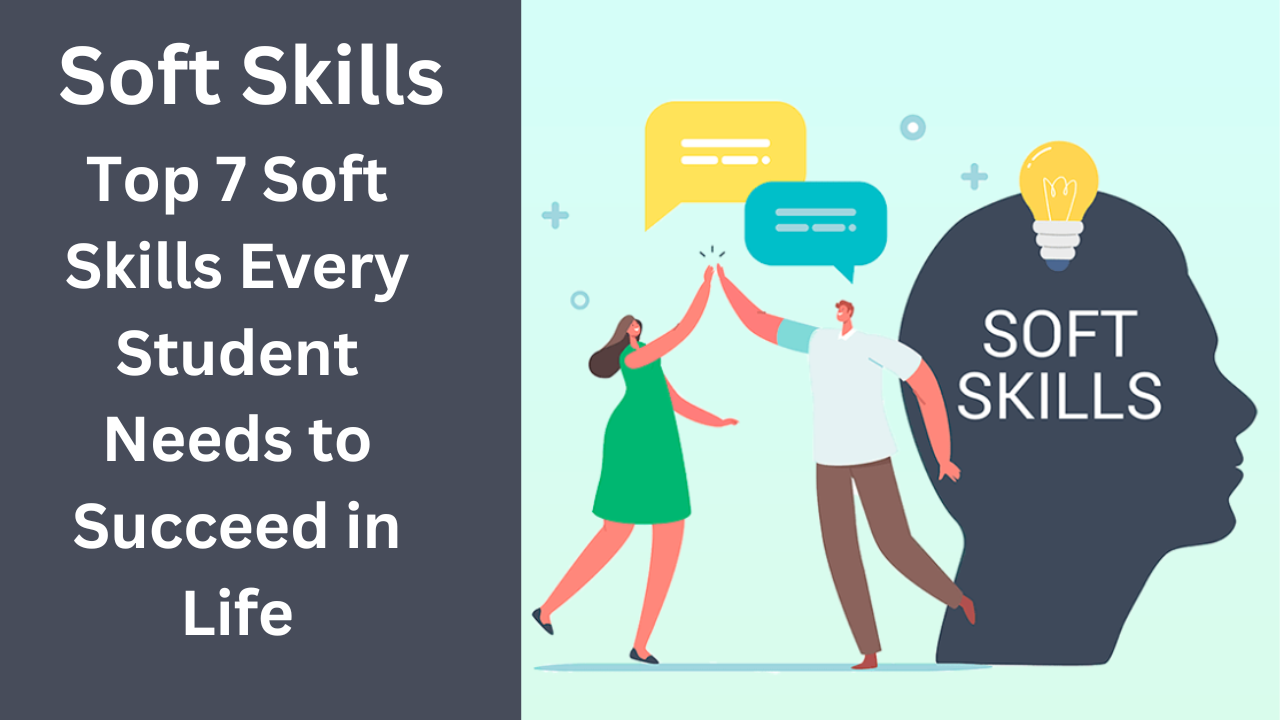Achieving success in life requires more than just technical know-how or academic accomplishments. Soft skills are just as important in influencing a student’s future as hard skills are in advancing their career. Student’s ability to deal with difficulties adjust to shifting circumstances and engage with others is determined by these abilities. Having the appropriate soft skills can help students stand out in an increasingly competitive world and open doors to long-term success. These are the top seven soft skills that all students should learn.
Communication Skills:
The key to success is effective communication. Whether communicating verbally in writing or through nonverbal clues students must be able to express themselves clearly. Proficiency in communication is beneficial in group projects the classroom and future careers. Active listening skills and self-assured idea expression promote stronger bonds and guarantee that students can carry themselves professionally in work settings. Learning how to communicate effectively can greatly improve a student’s capacity to express ideas through writing public speaking and discussion.
Critical Thinking and Problem-Solving:
The capacity to critically evaluate circumstances and solve issues is crucial in a world that is changing quickly. With the help of critical thinking, students can approach problems rationally and come to well-informed conclusions. Students with problem-solving abilities are better able to confidently handle complexity whether they are tackling arithmetic problems evaluating works of literature or choosing a career. Student’s critical thinking skills can be improved and they can be better prepared for problems in the real world by fostering curiosity challenging presumptions and seeking out different viewpoints.
Emotional Intelligence:
Understanding and controlling one’s emotions while having empathy for others is known as emotional intelligence (EQ). Students with high EQ are better able to manage stress form closer bonds with others and function well in groups. The essential elements of emotional intelligence include self-awareness self-regulation motivation empathy and social skills. Students who improve their EQ are better able to handle conflict take care of their mental health and lead others. Enhancing emotional intelligence can be achieved through self-reflection mindfulness exercises and learning how to respond positively to criticism.
Adaptability and Resilience:
Since change is unavoidable students who can adjust to new circumstances and overcome setbacks will succeed in any setting. Adaptable students can adapt to various academic social and professional contexts and maintain an open mind. However, students who possess resilience can bounce back from setbacks without losing their motivation. Building these abilities requires adopting a growth mindset accepting challenges and growing from mistakes. It will be simpler for students to deal with life’s uncertainties if they develop resilience and flexibility.
Time Management and Organization:
Managing time effectively is a critical skill that influences academic performance and overall productivity. Students often juggle multiple responsibilities, including studies, extracurricular activities, and personal commitments. Effective time management helps them prioritize tasks, set goals, and meet deadlines efficiently. Being organized not only reduces stress but also improves focus and efficiency. Using planners, setting schedules, and eliminating distractions can significantly enhance a student’s ability to manage time wisely and maintain a balanced lifestyle.
Teamwork and Collaboration:
Collaboration skills are crucial in both academic and professional contexts. Working as a team entails accepting diverse opinions participating in group projects and amicably resolving disagreements. Students who possess collaborative skills perform better in group projects internships and future workplaces where success depends on teamwork. Compromise when necessary active listening and appreciating different viewpoints are all components of becoming a good team player. Students who are proficient in teamwork will have an easier time creating powerful networks and completing shared objectives.
Leadership Skills:
Being in a position of authority is only one aspect of leadership another is motivating and favorably influencing others. Students who possess leadership qualities are able to take charge inspire their peers and make moral choices. Effective leaders can lead teams to success because they are self-assured moral and able. The capacity to assign work offer helpful criticism and accept accountability for results are further traits of a leader. Students can develop these skills and get ready for future responsibilities by volunteering joining student organizations and assuming leadership positions in projects.
Conclusion:
Soft skills are the foundation of personal and professional growth. While academic excellence is important, developing these skills ensures that students are well-equipped to handle challenges, work effectively with others, and achieve their goals. By honing communication, critical thinking, emotional intelligence, adaptability, time management, teamwork, and leadership skills, students can position themselves for lifelong success. Investing in these abilities will not only enhance their academic journey but also prepare them for a fulfilling career and meaningful relationships. Ultimately, success in life is determined not just by what students know, but by how well they apply their knowledge and interact with the world around them.
